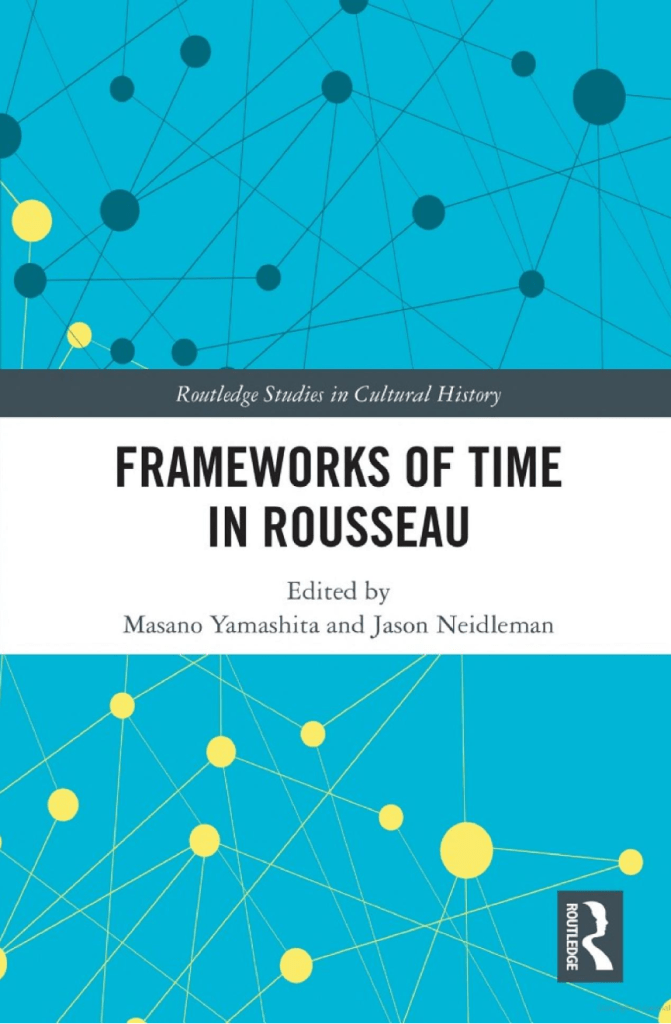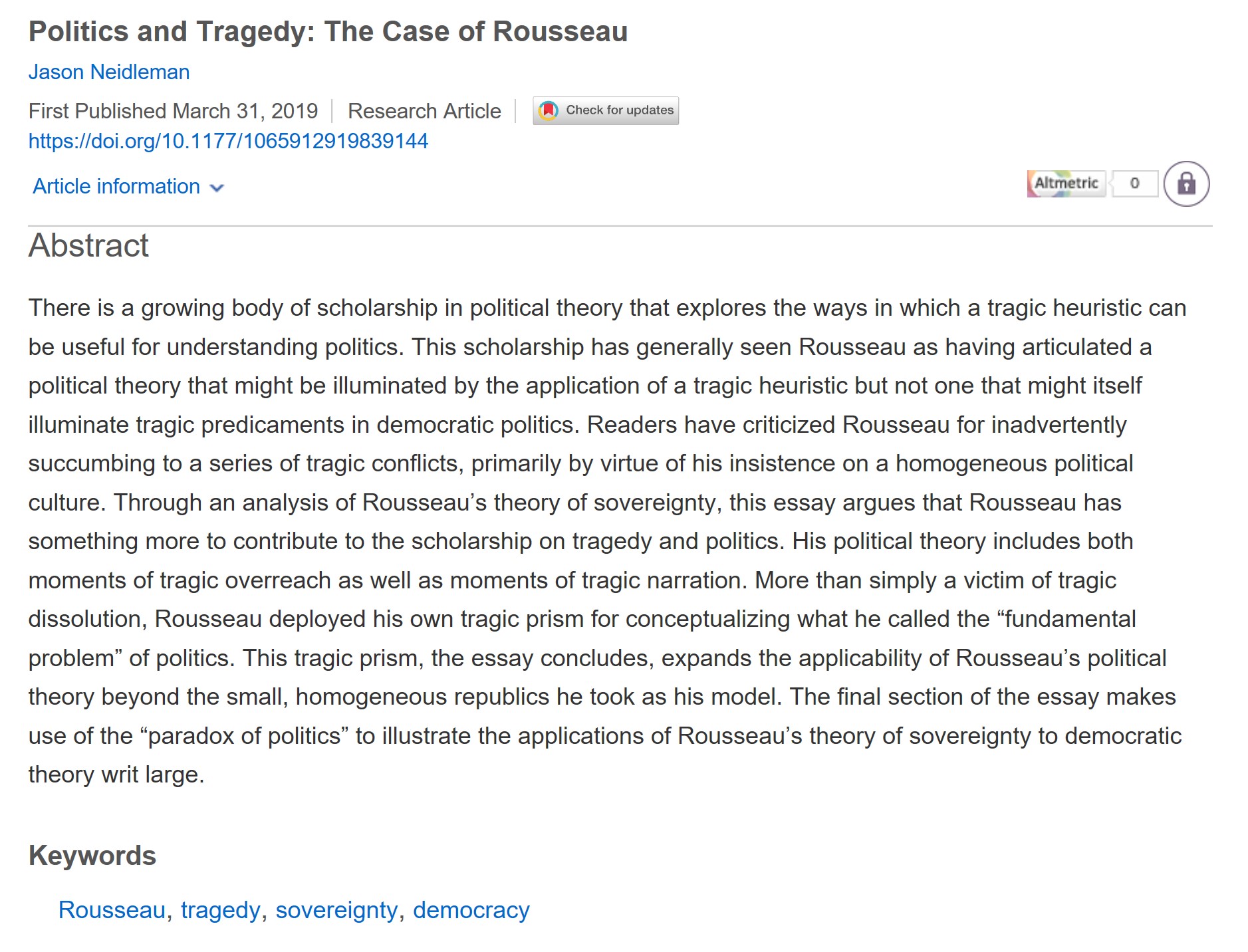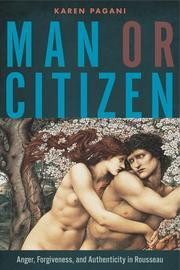
I teach political theory, along with other subjects I find interesting, such as the politics of urban land use and urban design, constitutional law, contemporary legal issues, and the politics of the modern Middle East, among others.
My primary research is on the philosophy of Jean-Jacques Rousseau. My current project is a study of the relationship between democratic instituions and a democtratic political culture. In particular, I am exploring the self-perpetuating culture of republican virtue that Rousseau believed was an essential supplement to democratic sovereignty.
Rousseau is still, in my view, the greatest theorist of the democracy’s constitutive conflicts. By studying his various attempts to resolve these conflicts, we can learn a lot about how we might redeem our own democracies.





 I had the privilege of reviewing Karen Pagani’s excellent
I had the privilege of reviewing Karen Pagani’s excellent 